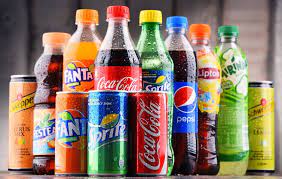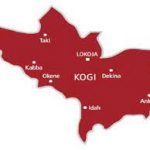New Tax On Carbonated Drinks’ll Worsen Economy – MAN, Experts
Featured, Latest Headlines, News Across Nigeria Thursday, January 6th, 2022
(AFRICAN EXAMINER) – The Federal Government has introduced an excise duty of N10 per litre on all non-alcoholic, carbonated and sweetened beverages.
Excise duty is a form of tax imposed on the production, licensing and sale of goods.
The Minister of Finance, Budget and National Planning, Zainab Ahmed, said this during the public presentation of the 2022 budget on Wednesday in Abuja.
According to her, the new policy introduced is in the Finance Act signed into law by President Muhammadu Buhari on December 31, 2021.
She said, “There’s now an excise duty of N10 per litre imposed on all non-alcoholic and sweetened beverages. And this is to discourage excessive consumption of sugar in beverages which contributes to a number of health conditions including diabetes and obesity. But it is also used to raise excise duties and revenues for health-related and other critical expenditures. This is in line also with the 2022 budget priorities.”
Also, Ahmed said the government had introduced a law requiring foreign companies providing digital services in the country to collect and remit Value Added Tax to the Federal Inland Revenue Service.
According to her, the new policy is also contained in Section 30 of the Finance Act which amended the provisions of Section 10, 31 and 14 on VAT obligations for non-resident digital companies.
The minister said, “Section 30 of the Finance Act is designed to amend Section 10, 31 and 14 of VAT is in relations to VAT obligations for non-resident digital companies and the mechanism that will be used is to restrict VAT obligations mainly to digital non-resident companies who supply individuals in Nigeria who can’t themselves self-account for VAT.
“So if you visit Amazon, we are expecting Amazon to add VAT charge to whatever transaction you are paying for. I am using Amazon as an example. We are going to be working with Amazon to be agreed to be registered as a tax agent for the FIRS.
“So Amazon will now collect this payment and remit to FIRS and this is in line with global best practices, we have been missing out on this stream of revenue.
For clarification, the minister said, the new law applies to foreign companies that provide digital services such as, “apps, high frequency trading, electronic data storage, online advertising” among others.
However, the Manufacturers Association of Nigeria and economic experts have warned that new tax imposed on carbonated drinks would be counter-productive.
MAN had commissioned a report detailing the effects of reintroducing excise duty on carbonated drinks and warned that it would be counterproductive and lead to revenue loss for the government.
The report, titled ‘key considerations against excise on non-alcoholic beverages’, projected that the government might collect N81bn revenue from excise duty on carbonated drinks between 2022 and 2025, but lose N197bn within the same period from other taxes, such as Value Added Tax and Company Income Tax from the manufacturers of soft drinks.
The report added that introducing excise duty would cause the beverage sub-sector of the food and beverage industry to lose up to N1.9tn in sales revenue between 2022 -2025, due to the imposition of the new taxes with simultaneous adverse effects on jobs and supply chain businesses.
The Director-General of MAN, Segun Ajayi-Kadir, also affirmed the content of the report when contacted by our correspondent.
He said, “I would like to say that the introduction of excise duty of N10/litre on non-alcoholic, carbonated and sweetened beverages, despite its potential overwhelming negative impact is rather unfortunate.”
He stressed that the excise duty tax would affect the sub-sector, which has contributed significantly to the economy and taxes, despite the debilitating effects of naira devaluation, inadequacy of forex, and the COVID-19 pandemic.
He added that the government’s revenue aspirations might not be realised in the long run.
“The revenue aspirations of the government in introducing this excise may not be justified in the long run. Let us look at it this way. The government is estimated to generate an excise tax of N81bn between 2022-2025 from the group. This will not be sufficient to compensate the corresponding government’s revenue losses in other taxes from the group.”
He also said the move might lead to employee salary reduction, retrenchment, and general increase in prices of goods.
This, he said, might put the products out of the reach of the poor segments.
Also, the Fiscal Policy Partner and Africa Tax Leader at PwC, Mr Taiwo Oyedele, expressed concerns over the effects of the development on the manufacturing sector.
He said, “I will be more concerned about sectors like manufacturing because their cost is rising and they are not able to increase their selling prices because the purchasing power is low.
“If you impose a tax, because they want to survive, they have to cut down on employment and find a way to survive. In terms of inflation, when you impose maybe an excise tax, if the sector is able to pass it on to customers, it would be higher selling prices, leading to inflation.
“But if the products are very elastic, and you are afraid of losing the market, then you bear the costs and your margins will be low. If your margin is low, it means what you pay in company income tax will be less, and your shareholders will get less in dividends, affecting their own purchasing power as well. So, taxes, sometimes, have unintended consequences, which policymakers must always consider.”
PUNCH
Related Posts
Short URL: https://www.africanexaminer.com/?p=72530




















